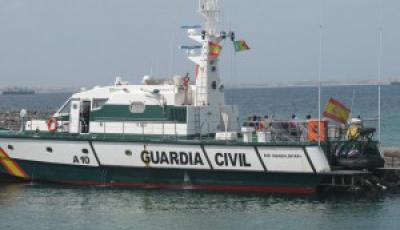Border Control Intervention in West Africa: Thinking Beyond the Global North
Posted:
Time to read:
Guest post by Philippe M. Frowd, a doctoral candidate in international relations at McMaster University, in Hamilton, Ontario, Canada, whose research examines border security measures in West Africa as a form of state building. In his dissertation, Philippe focuses on Spain’s role in preventing irregular migration from the region, the EU’s assistance to reinforce border infrastructures, and the growing use of biometric registration practices in national ID, passports, and visas.
The ongoing hardening and thickening of borders in Europe and North America is relatively well documented. Over the last decade, scholars and activists have tracked the intensification of control at various border points including detention zones, passport control, and the high seas. My research builds on the orientation and critical energies of this work, examining a similar proliferation of borders taking place in West Africa. Throughout the first six months of 2013, I conducted fieldwork in Senegal and Mauritania, investigating three interrelated cases: Spanish efforts to stop irregular migration, EU funding for border post construction in Mauritania, and the use of biometric technologies in both countries. Overall, I interviewed about 50 security officials of various levels, staff in international organizations, smugglers, and migrants.

Such interventions seek to shore up capacity and rationalize border management, but they are not value-neutral: training and equipment dictate approaches to border control. The proliferation of borders is therefore reliant on a proliferation of ideas about who should control borders and how—what we could call ‘cultures of border control.’ Training transmits worldviews about what security problems are important, while equipment sets path dependencies for particular approaches to responding to these threats. During the course of my research, I encountered a hybrid worldview of border security as encompassing control (e.g., improving capacity through training) as much as care (e.g., more patrols to save more migrants) that was shared by interveners and intervened.
Why is this important? By asking the ‘who’ question about border control, we see that the proliferation of borders is the result of institutional and professional decisions and policies spanning global and local concerns. Paying attention to this interplay reveals the unique nature of border control in West Africa: that its everyday practices are underpinned in large part by concerns about capacity to control flows at the border and beyond. Investigating the ways—training, equipment, and more—through which this capacity is reinforced shows us how border governance in practice relies on competing ideals and visions of care and control.
Want to start a discussion about this topic? Post a comment here or on our Facebook page. You can also tweet us.
__________
How to cite this blog post (Harvard style):
Frowd PM (2014) Border Control Intervention in West Africa: Thinking Beyond the Global North. Available at: http://bordercriminologies.law.ox.ac.uk/thinking-beyond-the-north/ (Accessed [date]).
Share:








